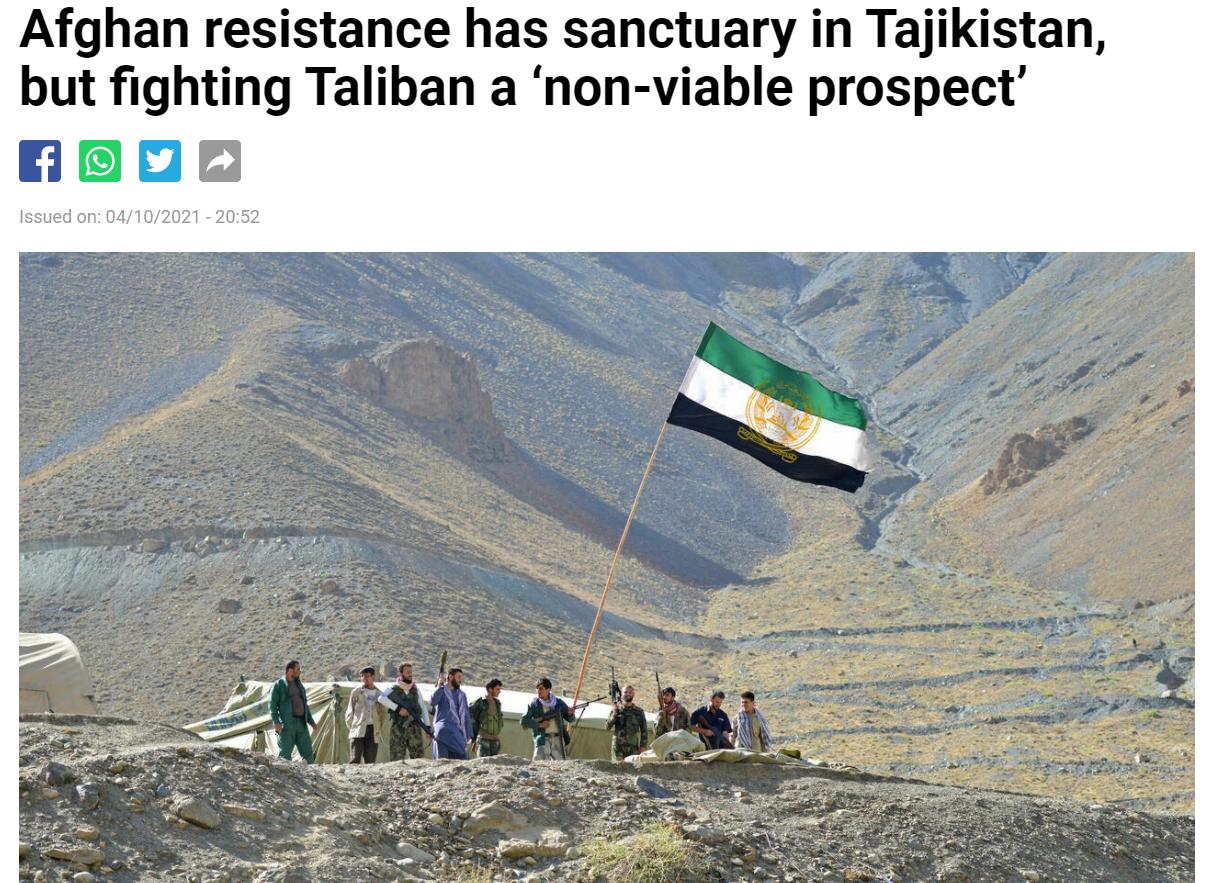According to France's 24 news network, the Financial Times reported last week that many leaders of armed forces opposed to the Afghan Taliban, such as Panjshir Valley Commander Masood, have fled to neighboring Tajikistan to seek refuge, where they hope to use as a base for continued fighting with Atta. But experts warn that any attempt to continue such battles is slim.

Screenshot of the French 24 news network report
According to the Financial Times, the government of Tajikistan has provided refuge for anti-Ata rebel leaders in the capital Dushanbe, including Ahmad Massoud, leader of the National Resistance Front in the Panjshir Valley, Amrullah Saleh, former vice president of Afghanistan and self-proclaimed acting president of Afghanistan, and Pedram, leader of the Afghan National Congress Party.
Some experts told the French media that the report was credible. Christina Fair, a professor at Georgetown University and a former political official at the United Nations Assistance Mission in Afghanistan, said she had no doubt it was absolutely true. Veda Melan, a professor of political science at the University of Exeter and an expert on Afghanistan, said the reports "appear to be credible." Murta Zashvili, an expert in the region and an assistant professor at the University of Pittsburgh's Graduate School of Public and International Affairs, added that one can "expect" the leaders of these Afghan armed forces to be in Tajikistan.
The French media noted that the anti-Taliban position was "very popular in Tajikistan.". In a key sign, Tajikistan's President Rahmon last month awarded the country's highest honor to Masood's father, Ahmed Shah Masood, an Afghan known in Western media as the "Lion of Panjhir, who was assassinated on September 9, 2001, for his persistence in the struggle against the Taliban in the valley region.
President Rahmon warned of the possibility that Taliban-controlled Afghanistan could once again become a breeding ground for terrorism on August 15 after the Taliban took over Kabul after the U.S. withdrawal. "If we don't pay attention to this situation, there is a risk that the situation in 2001 will repeat itself," he said. ”
Since coming to power in 1992, Rahmon is the only leader of the surrounding region whose term can be traced back to the Taliban's rule of Afghanistan from 1996 to 2001. At that time, Tajikistan supported the Resistance Movement of the Northern Union against the Taliban, and this prior experience gave Tajikistan the conditions to support Its opponents again. Another reason why the Government of Tajikistan has taken an anti-Taliban stance is that it is very concerned about militants of Ethnic Tajiks hiding in Afghanistan, fearing that they will destabilize the country in the future.
But experts say tajikistan's possible support is limited, "it's one thing for Tajikistan to provide safe haven for resistance groups, and it's another to allow its land to be used for cross-border military activities." Michael Kugelman, deputy director of the Wilson Center's Asia program, said, "Is Tajikistan willing to risk being dragged into the Afghan civil conflict?" Is its military ready to play a role in cross-border attacks against the Taliban? The answer may be no. (Edit: SDY)